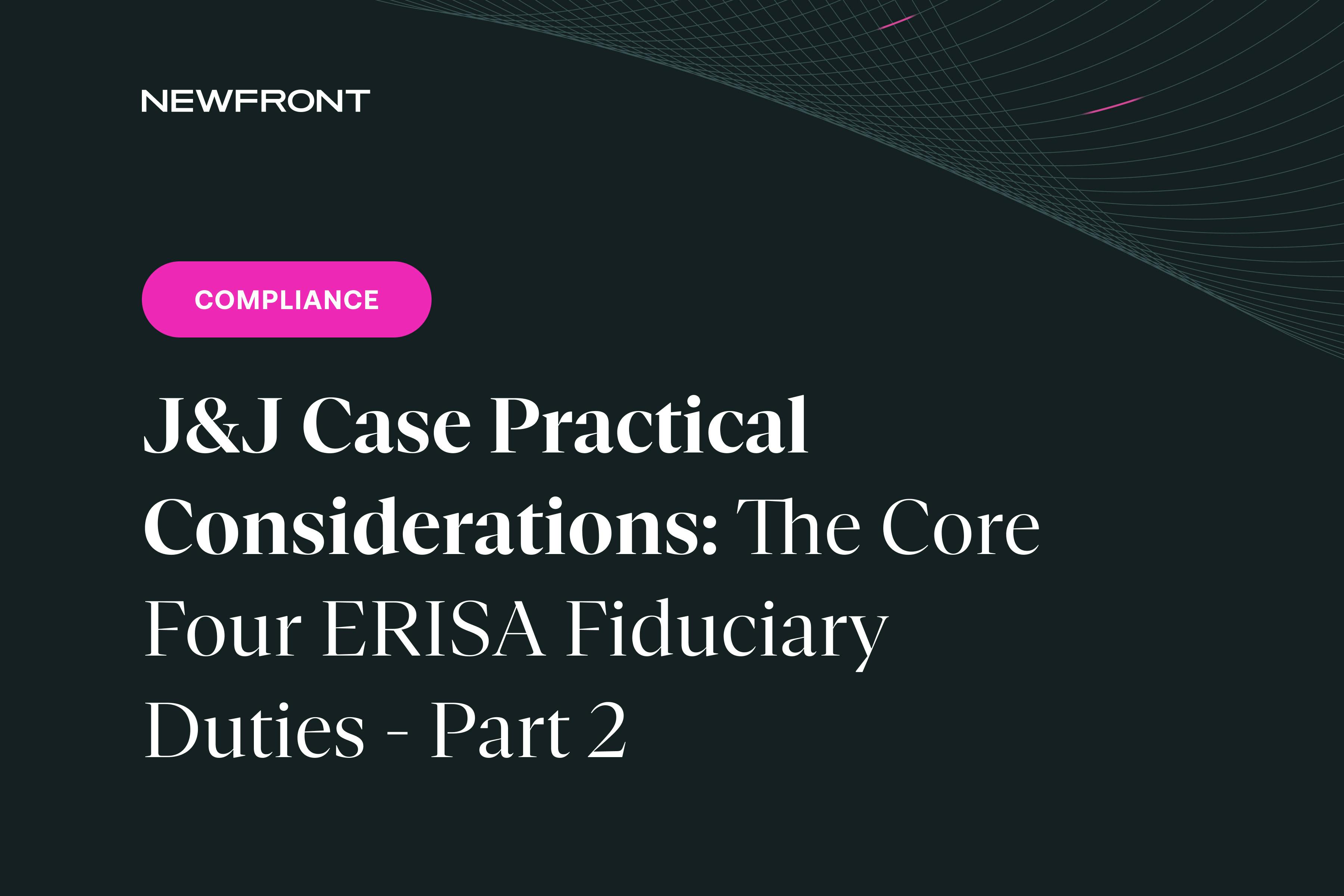California Enacts Individual Mandate and Paid Family Leave Expansion
By Brian Gilmore | Published July 1, 2019
On Friday, Governor Newsom signed into law his first budget for 2019-2020.
Included are two significant provisions related to employers:
The creation of a state individual mandate as of January 2020; and
The expansion of California’s paid family leave benefits to eight weeks as of July 2020.
A full summary of the budget bills is available here: https://www.gov.ca.gov/2019/06/27/governor-newsom-signs-2019-20-state-budget/
California Individual Mandate Effective as of January 2020
California now joins Massachusetts and New Jersey with a state-based individual mandate requiring residents to maintain health coverage.
The ACA originally modelled its federal individual mandate (which took effect in 2014) upon the state individual mandate first imposed in Massachusetts during the Governor Romney administration in 2006. However, the TCJA effectively repealed the individual mandate effective as of 2019 by removing all penalties for failure to maintain coverage.
Since the removal of such penalties under the ACA individual mandate, a number of states have considered a state-based approach to mirror Massachusetts. New Jersey has already enacted an individual mandate, and it is expected that more states will follow in the near future.
California’s new individual mandate takes effect in 2020. In a similar fashion to the previous ACA individual mandate, the penalty for failure to maintain coverage is generally the greater of $695 or 2.5% of income over the filing threshold.
Although it is not immediately clear from the bill, it is likely that employers will have a reporting requirement similar to the requirement imposed on New Jersey employers. That requirement generally piggybacks on ACA reporting—unless such reporting is modified as a result of the practical repeal of the ACA individual mandate. In that case, it is likely a new state form will be required that is similar to the existing Massachusetts Form 1099-HC.
California Paid Family Leave Expands to Eight Weeks as of July 2020
California’s current six-week maximum period of PFL for new child bonding or to care for a seriously ill family member will increase to eight weeks as of July 2020. Legislative materials market the two-week extension as the equivalent of a one-month extension when accounting for the two additional weeks of paid family leave available to each parent.
The stated goal in the bill is to eventually increase PFL to a 12-week maximum in 2021-22. That would provide for a total paid family leave period of six months where utilized by two parents. The bill creates a governor’s office task force to develop a proposal for how to reach the desired 12-week goal. The task force will present its findings to the legislature by November of this year.
Summary
Most observers expected that many states would take action to protect the stability of individual markets in response to the effective repeal of the ACA’s federal individual mandate. California and New Jersey now join Massachusetts in what will almost certainly be a growing wave of similar new state individual mandate laws, particularly in blue states.
The snowball effect is already in full force when it comes to states enacting and augmenting paid family leave laws. California joins a long list of states that have recently made changes to paid family leave laws, in this case by expanding the existing program by two weeks (one month total for both parents combined) for eight weeks total paid family leave (four months total for both parents combined) available beginning July 2020.
It appears very likely California’s paid family leave expansion will continue in 2021-22 to 12 weeks—or six months total for both parents combined—pending the results of task force that will report its findings before the end of the year.

Brian Gilmore
Lead Benefits Counsel, VP, Newfront
Brian Gilmore is the Lead Benefits Counsel at Newfront. He assists clients on a wide variety of employee benefits compliance issues. The primary areas of his practice include ERISA, ACA, COBRA, HIPAA, Section 125 Cafeteria Plans, and 401(k) plans. Brian also presents regularly at trade events and in webinars on current hot topics in employee benefits law.
Connect on LinkedIn

